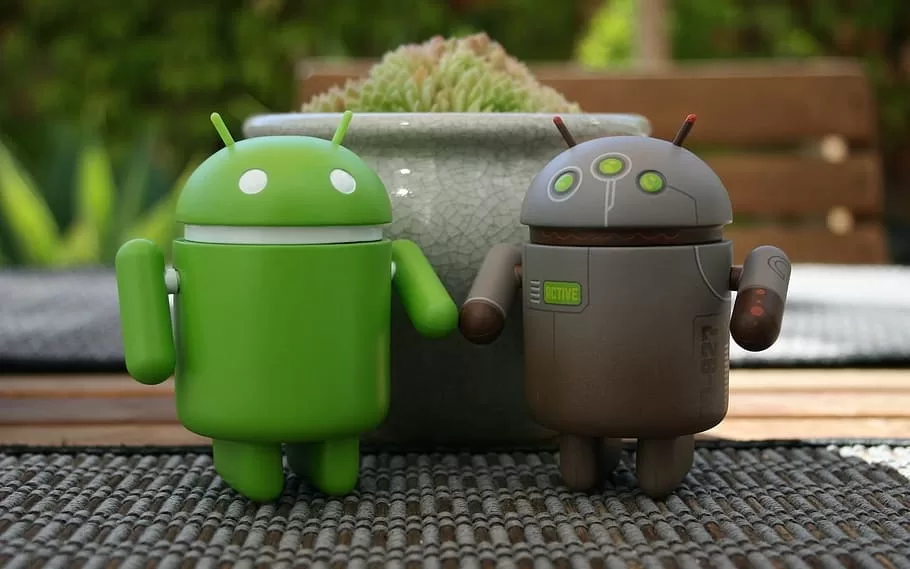Quick blog posting showing you the build.gradle.kts version of the default build.gradle file from the “empty activity” Android Studio template.
This post will go stale fast, get it whilst its hot. 🙂
The original templates come from the New Project, other templates are explained here: https://developer.android.com/studio/projects/templates
Google has an explainer of converting build configuration scripts from Groovy to Kotlin: https://developer.android.com/build/migrate-to-kotlin-dsl
Gradle has a primer for showing what build.gradle commands in Groovy look like in Kotlin build.gradle.kts files: https://docs.gradle.org/current/userguide/kotlin_dsl.html
Finally Google announced that Kotlin build.gradle.kts would be the new default for build configuration files: https://android-developers.googleblog.com/2023/04/kotlin-dsl-is-now-default-for-new-gradle-builds.html
Here is the current new project Groovy build.gradle file:
Groovy DSL
plugins {
id 'com.android.application'
id 'org.jetbrains.kotlin.android'
}
android {
namespace 'com.blundell.demo'
compileSdk 33
defaultConfig {
applicationId "com.blundell.demo"
minSdk 29
targetSdk 33
versionCode 1
versionName "1.0"
testInstrumentationRunner "androidx.test.runner.AndroidJUnitRunner"
vectorDrawables {
useSupportLibrary true
}
}
buildTypes {
release {
minifyEnabled false
proguardFiles getDefaultProguardFile('proguard-android-optimize.txt'), 'proguard-rules.pro'
}
}
compileOptions {
sourceCompatibility JavaVersion.VERSION_1_8
targetCompatibility JavaVersion.VERSION_1_8
}
kotlinOptions {
jvmTarget = '1.8'
}
buildFeatures {
compose true
}
composeOptions {
kotlinCompilerExtensionVersion '1.3.2'
}
packagingOptions {
resources {
excludes += '/META-INF/{AL2.0,LGPL2.1}'
}
}
}
dependencies {
implementation 'androidx.core:core-ktx:1.8.0'
implementation platform('org.jetbrains.kotlin:kotlin-bom:1.8.0')
implementation 'androidx.lifecycle:lifecycle-runtime-ktx:2.3.1'
implementation 'androidx.activity:activity-compose:1.5.1'
implementation platform('androidx.compose:compose-bom:2022.10.00')
implementation 'androidx.compose.ui:ui'
implementation 'androidx.compose.ui:ui-graphics'
implementation 'androidx.compose.ui:ui-tooling-preview'
implementation 'androidx.compose.material3:material3'
testImplementation 'junit:junit:4.13.2'
androidTestImplementation 'androidx.test.ext:junit:1.1.5'
androidTestImplementation 'androidx.test.espresso:espresso-core:3.5.1'
androidTestImplementation platform('androidx.compose:compose-bom:2022.10.00')
androidTestImplementation 'androidx.compose.ui:ui-test-junit4'
debugImplementation 'androidx.compose.ui:ui-tooling'
debugImplementation 'androidx.compose.ui:ui-test-manifest'
}>> You probably are looking for this KTS <<
And here is the Kotlin build.gradle.kts version.
Kotlin DSL
plugins {
id("com.android.application")
id("org.jetbrains.kotlin.android")
}
android {
namespace = "com.blundell.demo"
compileSdkVersion(33)
defaultConfig {
applicationId = "com.blundell.demo"
minSdk = 29
targetSdk = 33
versionCode = 1
versionName = "1.0"
testInstrumentationRunner = "androidx.test.runner.AndroidJUnitRunner"
vectorDrawables {
useSupportLibrary = true
}
}
buildTypes {
release {
isMinifyEnabled = false
proguardFiles(
getDefaultProguardFile("proguard-android-optimize.txt"),
"proguard-rules.pro"
)
}
}
compileOptions {
sourceCompatibility = JavaVersion.VERSION_11
targetCompatibility = JavaVersion.VERSION_11
}
kotlinOptions {
jvmTarget = "11"
}
buildFeatures {
compose = true
}
composeOptions {
kotlinCompilerExtensionVersion = "1.3.2"
}
packagingOptions {
resources {
excludes += listOf("/META-INF/{AL2.0,LGPL2.1}")
}
}
}
dependencies {
implementation("androidx.core:core-ktx:1.8.0")
implementation(platform("org.jetbrains.kotlin:kotlin-bom:1.8.0"))
implementation("androidx.lifecycle:lifecycle-runtime-ktx:2.3.1")
implementation("androidx.activity:activity-compose:1.5.1")
implementation(platform("androidx.compose:compose-bom:2022.10.00"))
implementation("androidx.compose.ui:ui")
implementation("androidx.compose.ui:ui-graphics")
implementation("androidx.compose.ui:ui-tooling-preview")
implementation("androidx.compose.material3:material3")
debugImplementation("androidx.compose.ui:ui-tooling")
debugImplementation("androidx.compose.ui:ui-test-manifest")
testImplementation("junit:junit:4.13.2")
androidTestImplementation("androidx.test.ext:junit:1.1.5")
androidTestImplementation("androidx.test.espresso:espresso-core:3.5.1")
androidTestImplementation(platform("androidx.compose:compose-bom:2022.10.00"))
androidTestImplementation("androidx.compose.ui:ui-test-junit4")
}Hope that quick conversion to Kotlin build.gradle.kts helps you! And hopefully this blog post will be deprecated when they update the templates to create Kotlin build Gradle files. 🙂
